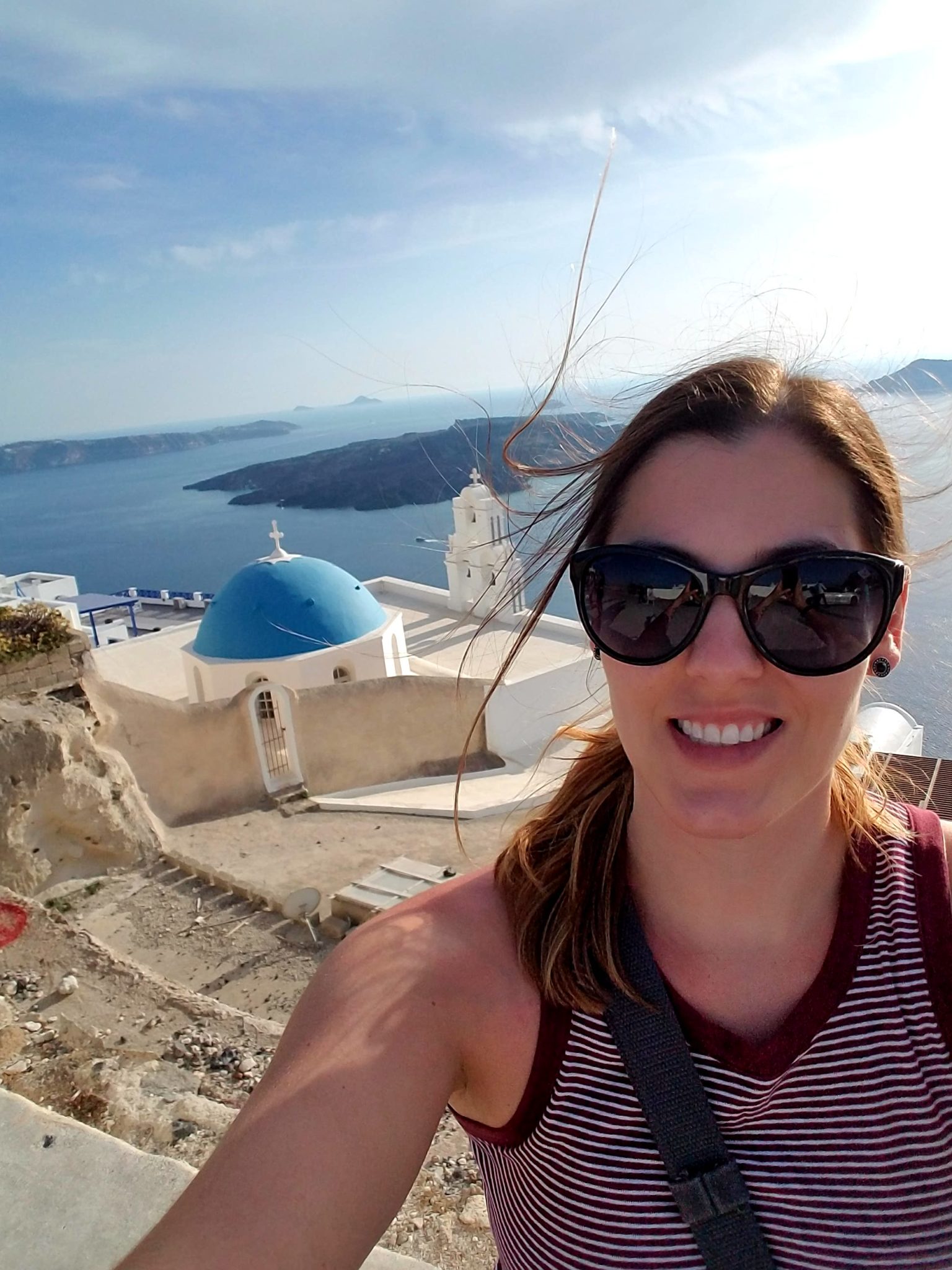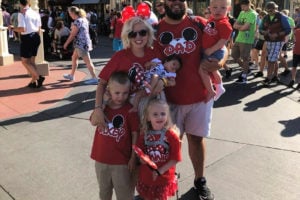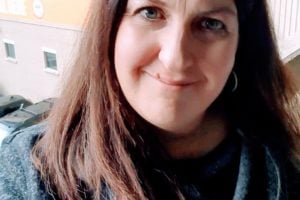In May of 2021, I dislocated my ankle. I was also on hormonal birth control. After the ankle injury, I was told to go home and rest, and not to bear weight on my ankle for 4-6 weeks.
After about a week and a half, I had intense pain and cramping in the calf of my injured leg. I called my doctor’s office and they told me to keep resting it. Nine days later as I was taking my dog outside, I collapsed in my backyard.
When I came to, I was shaken, disoriented, and my body felt heavy. I called 9-1-1 and was taken to a local hospital. At the hospital, they found my EKG had a “blip,” as they put it, and my heart enzymes were elevated. My d-Dimer, however, was negative. The doctor did a CT scan anyway and they found a massive saddle pulmonary embolism, or blood clot in my lung. I had to be airlifted to a hospital that had the resources to help me survive. Luckily, the hospital I was transferred to had a Pulmonary Embolism Response Team (PERT) and they were able to take care of the clot through a tPA. I spent three nights in the ICU and two nights on the cardiac floor of the hospital.
I wish that I was asked about my birth control when I was told to rest for 4-6 weeks, and I wish the doctors had me come in for a calf ultrasound when I complained about calf pain. I had risk factors for blood clots, but I did not know it.
My advice to others is to know your risk factors for blood clots. I didn’t know my risks, and when I had calf pain, it never crossed my mind that it could be something as serious as a blood clot. I feel lucky so far because I am not experiencing any lingering symptoms, but I am anxious about my risk in the future.
Through this experience, I also learned how important it is to have support and how meaningful it is to have people show up for you. The resources provided by the National Blood Clot Alliance, especially the e-magazines and online peer support community, have also been a huge help. I am grateful for all the people who have helped and supported me through this journey.
Resources
- Join our online peer support community to connect with other people who have experienced a blood clot.
- Visit NBCA’s recovery and support resources.
- Read more stories, or share your story with NBCA.




